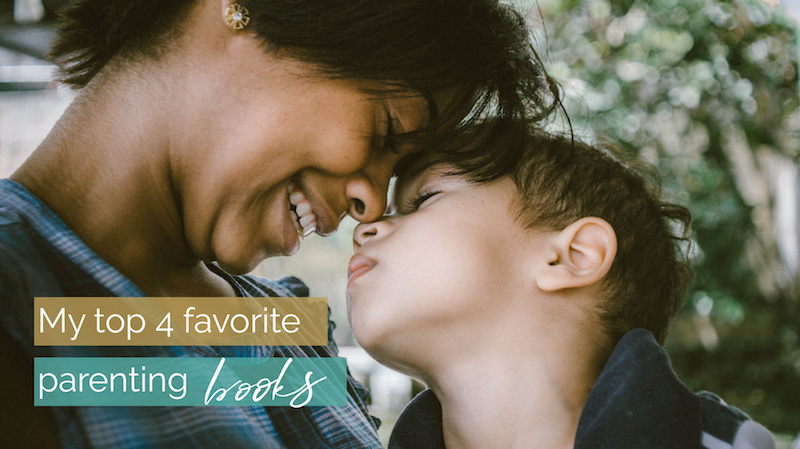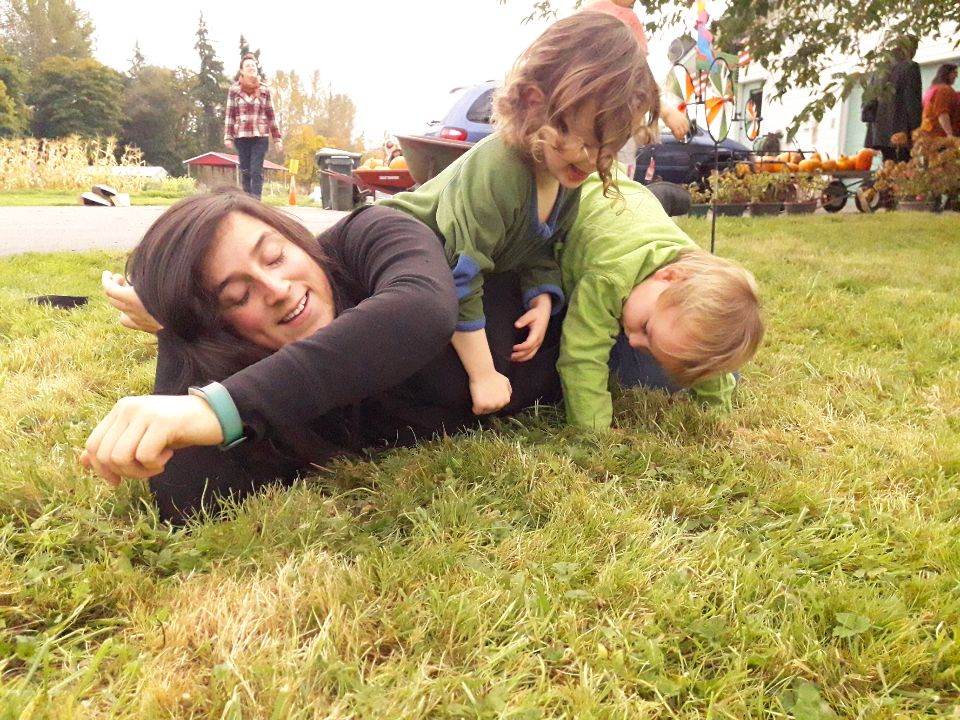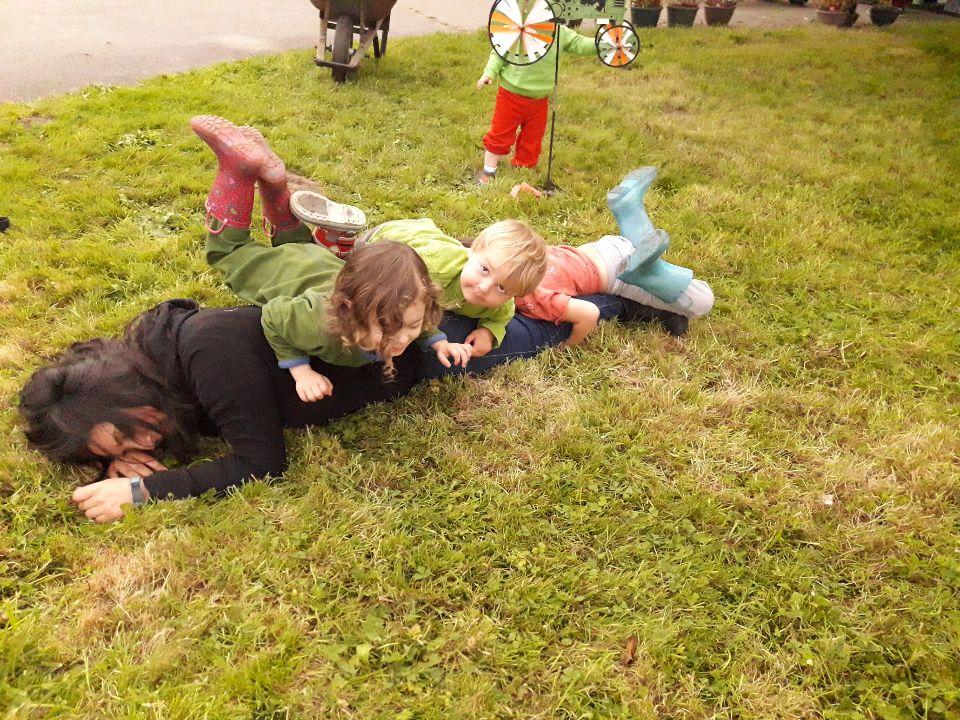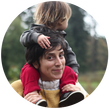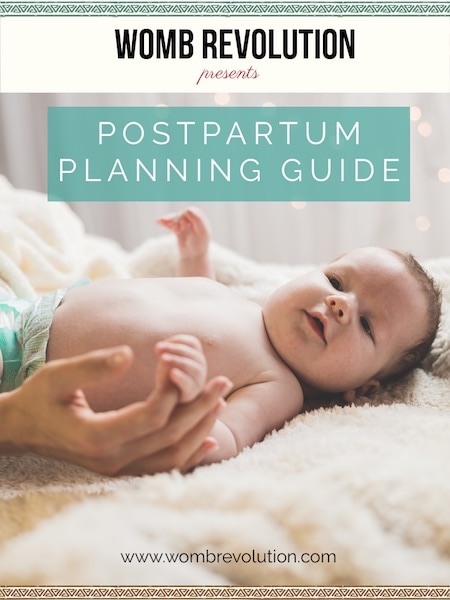- Every parent ever.
High on the increased alpha brain waves, I spent endless hours walking in nature, doing yoga, meditating, dancing and journaling about my dreams.
I also spent so much time learning about birth and preparing for the kind of birth I wanted, that very little thought went into the whole parenting gig.
I knew I wanted to do better than my parents and I didn't think it could be so hard. I naively thought that my intuition would probably be able to guide me through that too.
My birth was a great experience and it armed me with tons faux confidence about life that lasted a surprisingly long time. Parenting a baby came easy to me. I have always tolerated sleep deprivation well and I felt happy and bonded to my baby, who was pretty much stuck to me all the time.
When I was younger, I always got the message that it's mothers’ responsibility to make sure kids are good. Moms had to be eternally sweet but somehow unbreakably strict. A part of me knew that was all a bunch of bullshit, but without guidance, how was I supposed to move forward?
During my second pregnancy I felt like I already knew most of what I needed to know about birth and my focus shifted towards parenting tools. And very soon I realized the parenting world was even more overwhelming and full of contradictions than the pregnancy and birth world. Plagued by ridiculous expectations, unaware privileged narratives, and colonized Western agenda, the world of parenting "philosophies" and books was slightly terrifying.
I found solace, surprisingly, in science.
One of the books included in my Infant Sleep Education training was Whole Brain Child by Dan Sigel and from there, I followed the breadcrumbs through the forest of parenting advice until I found all the most incredible parenting books that have truly help get me through the last few years of parenting small kids as a single mother with no family in the country.
These are my favorite parenting books and tools, which have helped me immensely to rediscover the joy of parenting even in some of the most stressful situations of my life.
1. Whole Brain Child by Daniel Siegel and Tina Payne Bryson: If love science you will love the Whole Brain Child. Dan Siegel is an actual neuroscientist who breaks down the functioning and development of children's brains so that we can truly understand how we can connect with them. I often see very well intentioned adults talking to children who are completely unable to listen because of the way their brains are working at the time. I also often people talking about the idea of "talking to kids as if they were adults." But guess what? Kids are not little adults. Their brains are literally under construction and the way we respond to them (or not) is helping shape their neuropath ways. This book also includes fun illustrations, which makes the complex concepts easier to grasp.
2. Peaceful Parent, Happy Kids by Dr. Laura Markham: This is a great book to read after The Whole Brain Child. Dr. Markham also looks at parenting from the lens of neuroscience to help us stay connected in ways that will help our children develop emotional intelligence, empathy and personal responsibility. She bases her parenting approach in three big concepts: Self-regulation, connection, and coaching instead of controlling. She provides solid tools, resources and book suggestions that are incredibly helpful.
3. Peaceful Parent, Happy Siblings by Dr. Laura Markham: This book is great to read even before you are expecting with your second or consecutive baby. There is a fantastic chapter I often recommend to doula clients about preparing the oldest sibling(s) for the arrival of a new family member. This book helps us view the world from our kids’ perspective and embrace a no-blame approach that creates a family culture of collaboration, problem-solving, and deep connections.
4. Playful Parenting by Lawrence J. Cohen: This book is probably my favorite because it's an absolute joy. Larry Cohen provides plenty of wonderful examples of games to help our children work through complicated emotions, life changes, and ordinary challenges. Even if you don't use the exact games he suggests, reading this book will help you get into a playful mode that allows you to create your own games on the spot, the ones that will perfectly match your child's needs. If you're ready to bring more laughter into your life as a parent, this is a great book for you. Making play a way of life will deeply enrich your bond with your children and your personal development. Larry Cohen has definitely helped me embrace my inner goofball and gave me tools to connect with not only my own kids, but my friends' kids as well.
Dr. Markham also has a parenting class in her website ahaparenting.com and I highly recommend it.
Becoming the parent I want to be has been so much harder than I ever imagined. It's of course a work in progress. Some days I do better than others. Rewiring my own brain to break away from the default ways in which I was raised (yelling, bribing, threatening) is really, really hard work. Self-regulation in a world overloaded with stress is really hard. We are constantly being bombarded with “easy-fix, self-care“ concepts and the truth is there are no shortcuts to healing and learning.
We all do the best that we can. And hopefully our kids will do even better.
I would love to hear from you! What are your favorite books, tools and parenting advice?
